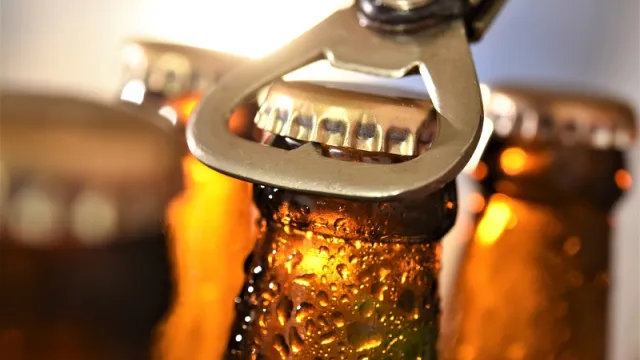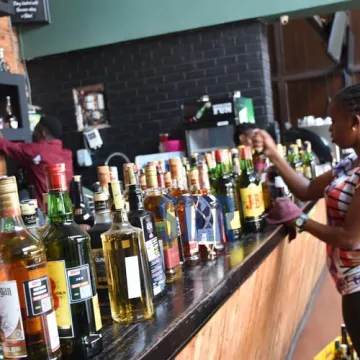New policy to serve Kenya's alcohol market a sobering shift

According to the Ministry of Interior's Prevention, Management and Control of Alcohol, Drugs and Substance Abuse policy, restaurants and dining areas in members' clubs and hotels will not be licensed for customers to consume alcohol onsite.
Players in the alcohol industry are bracing for a sobering reality as a new directive seeks to further constrain operations in the trade and sale of alcoholic beverages in yet another push by the government to tackle a growing "health, social, economic and political challenge."
According to the Ministry of Interior, supermarkets will now be starved of a lucrative revenue stream as new policy prohibits sale of alcohol in the retail enterprises.
Also prohibited from the sale of beers, spirits and wines are liquor shops, companies and manufacturers who use online portals, an emerging trend that has been a primary driver of sales for investors in the segment across towns and cities in Kenya.
Online liquor trade prohibited
Online portals facilitate home delivery of alcoholic drinks to customers, a mode of trade which the Prevention, Management and Control of Alcohol, Drugs and Substance Abuse policy prohibits, too.
According to the policy, restaurants and dining areas in members' clubs and hotels will not be licensed for customers to consume alcohol either.
Additionally, restaurants, public beaches, bus parks, bus stops, hospitals, petrol stations, children toy shops will not be allowed to accommodate liquor businesses.
"Licensing of any outlet retail (on-license and off-licence) or wholesale located within a minimum of three hundred metres from any nursery, primary, secondary, and higher learning institutions shall be prohibited," the National Policy for the Prevention, Management and Control of Alcohol, Drugs and Substance Abuse states in part.
Furthermore, the number of liquor outlets in a given area will also be affected with the policy noting that the opening of alcohol shops shall be determined by "the population density and other relevant considerations" in an area. There shall be "restrictions with the types of licenses" issued, the directive adds.
"This policy is the culmination of an extensive, inclusive, and collaborative effort involving diverse stakeholders across Kenya—from national and county governments to civil society, faith-based groups, the private sector, and the general public."
It adds, "the main objective of this policy is to minimize the incidence and prevalence of alcohol drugs and substance use-related harm by addressing the underlying demand, supply, environmental and organizational factors."
No free samples, price discounts
According to the ministry, the policy directive serves as the national government's strategic blueprint for coordinating all stakeholders, especially county governments, in the fight against alcohol and drug abuse, Interior Cabinet Secretary Kipchumba Murkomen explained.
The marketing of alcoholic beverage products has also been affected with the policy noting that companies are prohibited from offering "free samples or discounted prices" to customers.
Currently, free samples and price discounts are a key element of trade, as alcoholic companies fight for customers and introduce new products in the market.
"All alcoholic products’ prize-oriented competitions and promotions that encourage more alcohol consumption in order for one to win shall be banned," the directive states.
Also affected are celebrities in the new policy regime affecting alcoholic beverages trade. Celebrities have been benefiting from brand endorsements of various liquor brands in the industry.
The new policy, however, outlaws the use of "entertainment, sports personalities, media personalities and models, social media influencers or celebrities in endorsing, promoting and advertising alcoholic drinks."
Sports teams and associations will also be starved of much needed financial support with the new policy barring manufacturers, importers, distributors, wholesalers, retailers or "any related agent of alcoholic drinks" from naming or branding sports teams by the name of an alcoholic drink or product.
The policy further seeks to edge out alcoholic companies from their involvement in sponsoring sports leagues, tournaments or even any national team.
Cost of rehabilitation
Under the policy, players in the liquor industry will shoulder the cost of rehabilitation and treatment for consumers who turn addicts through license fees.
"County Governments shall establish a fund for research, prevention, treatment and rehabilitation and control of alcohol and drug abuse to be financed from alcoholic drinks outlets licenses, funds appropriated by County Assemblies and other sources of funds
Kenya has been grappling with rising cases of use and abuse of drugs. A 2022 survey by the National Authority for the Campaign Against Alcohol and Drug Abuse (NACADA) shows that there is steady national decline in the minimum age of initiation for various substances in Kenya.
Alcohol in schools
For instance, children as young as six years are getting initiated into tobacco use, seven years for alcohol, eight years for cannabis and prescription drugs, and nine years for khat/miraa. Harder substances such as heroin and cocaine had higher initiation ages of 18 and 20 years, NACADA noted.
Among younger Kenyans, NACADA established that one in every 20 or over 368,000 youth aged between 15 and 24 years are consuming alcohol. What's more, one in every seven youth aged between 25 and 35 in Kenya is consuming alcohol. This represents about 1.14 million youth, NACADA said.
Equally frightening finding is that secondary schools are no longer drug free zones with alcohol use affecting about 3.8 percent of secondary school students.





